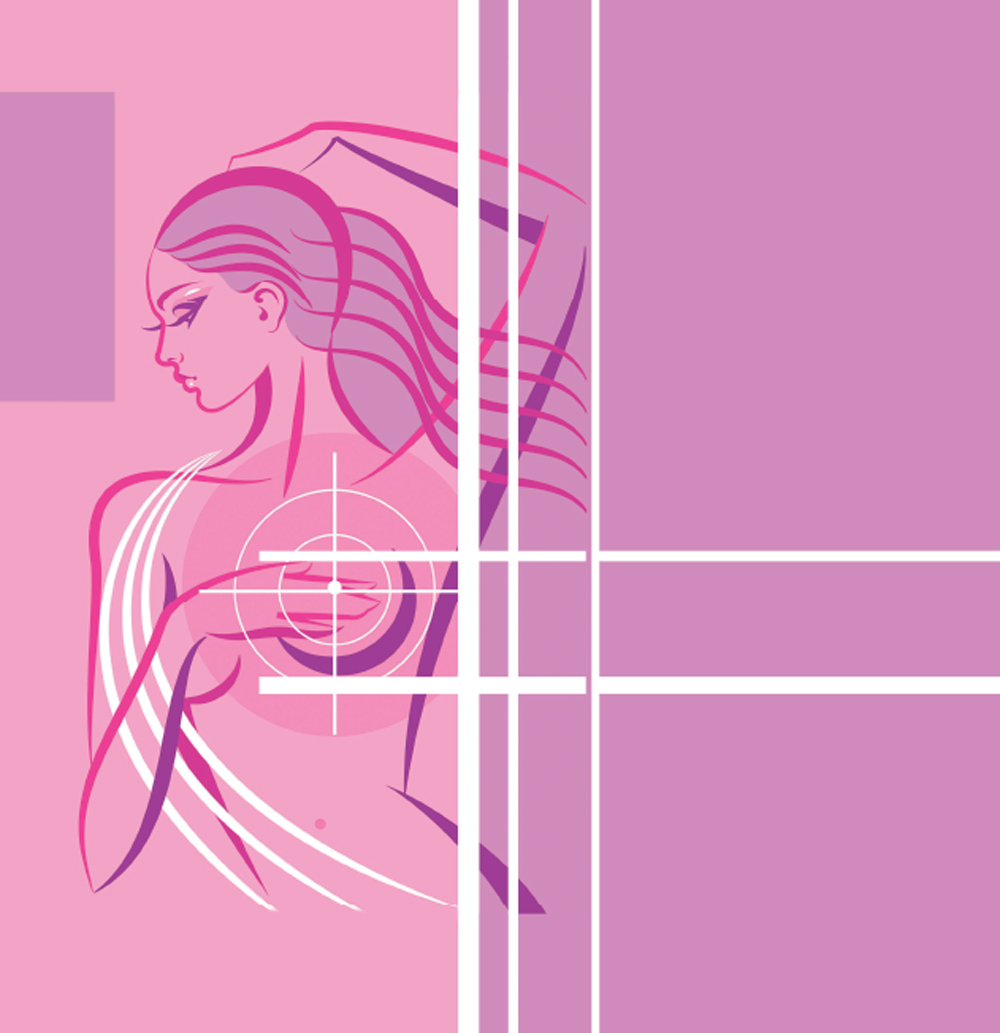A diagnosis of cancer comes not just to a person’s physical body, but also to her emotional body, her mental body, her belief systems, and her role in society, family and community. The diagnosis comes with many questions and fewer answers. It comes with “what if, could have, should have…” It comes with infinite medical appointments, instructions and new terminology. It comes with fears, anxiety, longing and loneliness. And, according to Carrie Sanders, it comes with a chance to wake up and live life more fully and authentically.
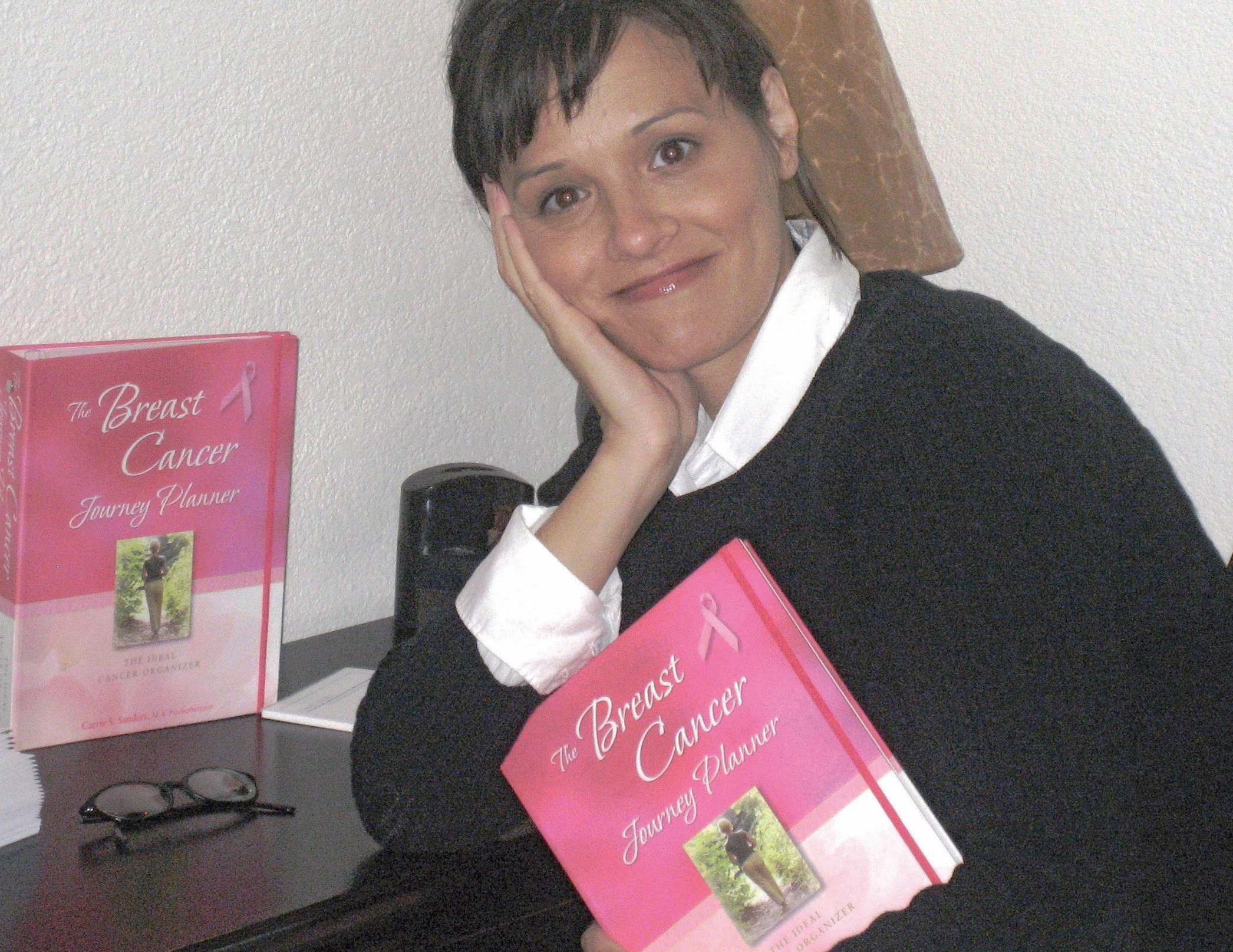
“While other 19-yearolds were looking for the next big party, Carrie was looking for hats to cover her newly balding head, a side effect of her cancer medications.”
While other 19-year-olds were looking for the next big party, Carrie was looking for hats to cover her newly balding head, a side effect of her cancer medications. Carrie was being treated for Hodgkin’s disease, a cancer of the lymphatic system, with radiation and chemotherapy. But what may have seemed like a desperate situation was, in fact, fertile ground for the seeds of insight and discovery. It was in these dark moments that Carrie discovered her own source of peace, her inner strength, and her life’s work: serving people affected by cancer.
During her months of treatment, Carrie would (literally) take her hat off to other bald people on the street, surprising them with her very young and very bald head. In doing so, she learned how she could use the connection of shared experience to create a moment of happiness and joy. She recognized that when we take what is considered a negative experience, and use it to help other people, it becomes a positive one.
Twenty years later, Carrie is a psychotherapist specializing in treating clients impacted by cancer. She has published her first book, The Breast Cancer Journey Planner: The Ideal Cancer Organizer. Because of her own firsthand experience of cancer, and the subsequent insights and knowledge earned, Carrie understands the complexities of the diagnosis, and the need to clearly understand not only the medical diagnosis but the meaning it has for one’s life.
The classroom of cancer
When Carrie was first diagnosed, she felt lost, alone and completely confused. She couldn’t understand how the world could keep turning, how people could go on with their daily lives, while her life was changed forever. Thankfully, she had the support of a large family (eight siblings, including an identical twin sister, who was never diagnosed). While she expresses enormous gratitude for her family’s well-meaning support, she says she really needed someone to normalize her situation, to find a context for her feelings, and to show her that she wasn’t alone in her experience.
She received tremendous support in books by Bernie Siegel and Louise Hay, practitioners and writers in the alternative medical community, emphasizing the interdependent relationship between mind and body. Carrie was experiencing this connection on a very personal level, noticing how her own attitude impacted her physiology, and she found relief and nourishment in this whole-person approach to healing: using the power of the mind to change belief systems at play in the body, inquiring into the importance of meaning, interpretation, and transformation within an experience of suffering.
Carrie continues to hold this approach at the heart of her practice. The tagline on her website is: Enhancing the Power of the Human Spirit. Clients may not come to her looking for insights; some simply want to be able to achieve a level of daily coping. But insights do come, and meaning comes; they learn to find the strength in their misery that has the power to transform their lives. Carrie insists that our misery always pays us in the end, even though we may not be able to see it right away.
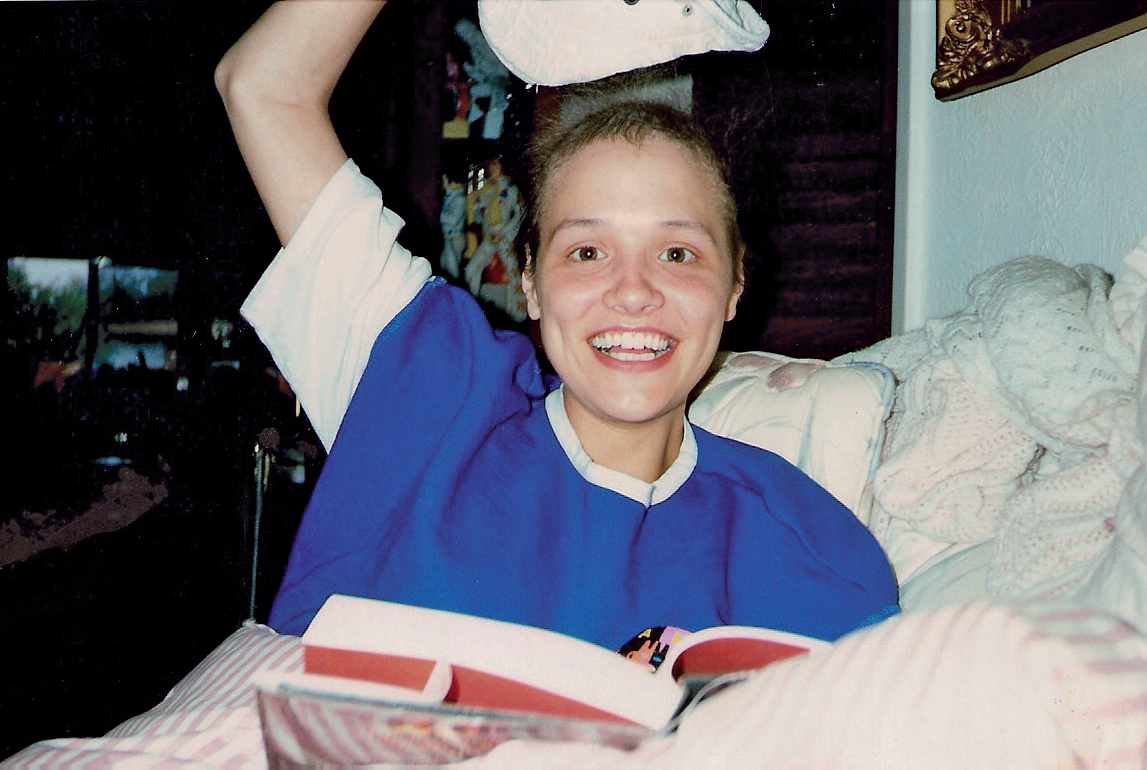
Caring for the emotional landscape
While the medical community will immediately address the physical issues, the medications and physical treatments, the emotional landscape is of no lesser value to the healing process. When emotional needs are addressed in the earlier stages of a cancer diagnosis, one may be more capable to undergo cancer treatments successfully. Even the most conservative allopathic physicians agree with the connection between stress and the immune system, and there are numerous healing systems that identify correlation between emotions, spirituality, beliefs and mental states, organ function, immune function, digestive ability, quality of life and survival rates. When we care, feed and nourish the emotional landscape, the physical landscape benefits.
Carrie’s book, The Breast Cancer Journey Planner, is one tool for organizing the external and internal landscape. It begins with very practical information, such as places to write insurance company information, doctors’ names, and lists of questions to ask when visiting medical providers. This section satisfies the immediate mental needs for names, numbers, lists, and other such quantitative information. Then there are blank pages for journaling and questions to ponder, such as “Things I love and appreciate about my body” and “Things I want others to know.” By bringing together the very practical and the qualitatively intangible, it offers space for the many questions, answers and wonderings in-between.
Carrie explained the order of the book as following what is generally the path for people newly diagnosed with cancer. Carrie also admits that she would like to see emotional needs addressed much sooner than they currently are for cancer patients and their families. The state of the mental, emotional and spiritual self cannot take such a backseat to the physical ailment, as they are interconnected.
Validating the unseen
The need for normalization of the emotional experience of cancer, which Carrie herself speaks to in the context of her cancer treatments, is an area she feels requires more general awareness and attention. Most people can point to hair loss, weight loss, swelling and nausea as symptoms of cancer or cancer treatment. But the symptoms of anxiety and depression don’t make many appearances in the general media and can be just as traumatizing, if not more so, than the external changes. Carrie plans to focus her next book on these emotional needs, as she feels that this is a largely unaddressed area of cancer treatment and care.
Care for the caregivers
For those who are in the role of family or friend to someone with cancer, Carrie advises to be “like the Rock of Gibraltar”: To stand tall and not to shy away, no matter what. She also highly recommends that the primary caregivers seek out some type of support for themselves. Cancer can be just as traumatic for the caregivers as it is for those who have been diagnosed: the vulnerability and helplessness of watching someone you love experience hair loss, vomiting, weakness, fear and emotional challenges. When the caregivers have the support they need, they can be better equipped, more available and open to provide this support for their loved one.
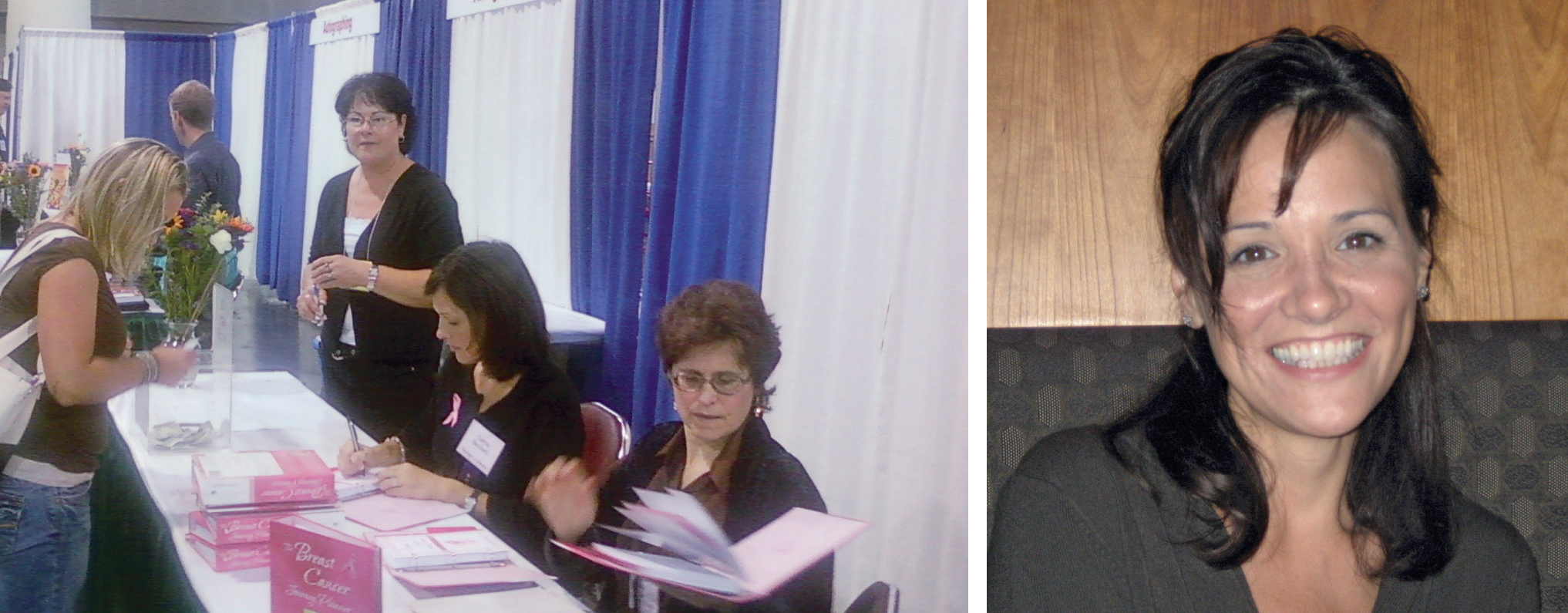
Many cancer patients don’t feel safe enough to tell their family and friends that they are scared to death of what’s happening. They already feel burdensome to those around them that they may keep these feelings inside – instead of sharing and allowing them to be heard and validated.
While the word “cancer” may be one we hear every day, the effects of the illness on the patient, friends and family go largely unspoken and unrecognized. Bringing these aspects of cancer into the light, into conscious understanding and awareness, offers relief to the depression and loneliness often felt by those dealing with cancer.
Daily practices
There is a simple yet profound self-care practice Carrie implemented during her own cancer treatment that she still uses today. It includes a list of all the things she enjoys – walking, reading, watching movies, etc. She is not treating these activities as a distraction, but instead as a relaxation tool and a special treat for herself. Before and after she sits down to watch a movie, she says to herself, “I’m doing this to care for myself. I am loving myself by giving myself time to watch a movie.” She remarks on how her energy is uplifted spiritually and emotionally by offering this conscious gift to herself.
Carrie uses various self-care practices herself and recommends them to clients. She says she has found wisdom and relief in yoga, breathing exercises, meditation and Tonglen practices. She highly recommends journaling to her clients: “Give your thoughts and feelings to the paper,” she says. Self-care is an essential medicine, from the perspective of mind-body health. Recognizing and respecting the inner dialogue, discovering the inner jewels, whether they arise from a yoga posture, or the permission to lie on the couch and watch a movie, sends a message to the body that it is cared for and appreciated.
“The joy and blessing in her work is the opportunity to watch people discover deep peace and happiness within themselves, finding strength in misery and moving from a feeling of being victimized to that of empowerment.”
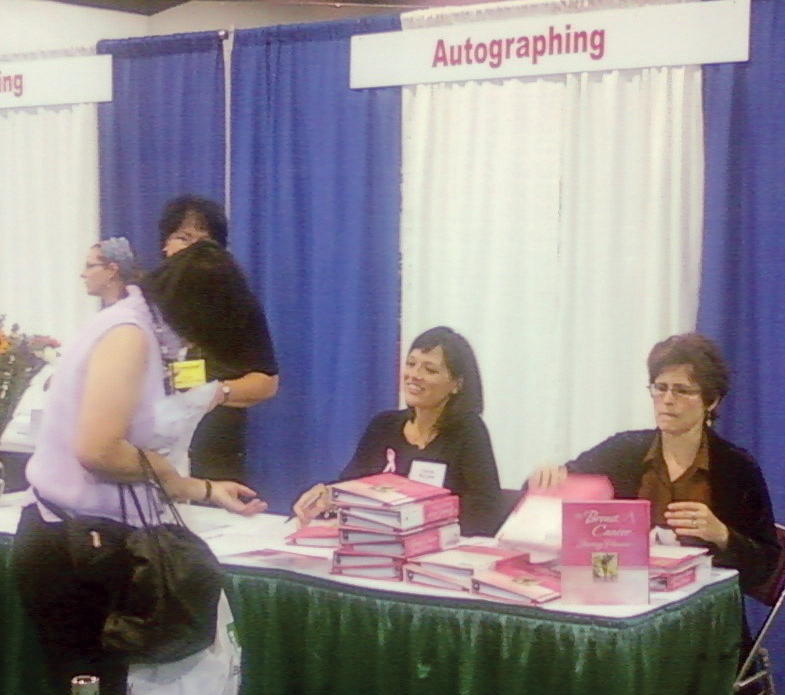
Enhancing the power of the human spirit
Carrie sees cancer as a wake-up call, a message to live life more authentically and fully. Within suffering and pain there is a gift of wisdom and service. The joy and blessing in her work is the opportunity to watch people discover deep peace and happiness within themselves, finding strength in misery and moving from a feeling of being victimized to that of empowerment. She sees people beginning to ask these questions about mind-body health and self-care not only with respect to cancer treatment, but also with regards to cancer prevention for themselves and their families. This is the story behind the story, behind the hair loss, behind the pink ribbons. This is the story that needs to be shared — the story of moving through the darkness of cancer to discovering the seed that can be transformed into wisdom and offered in service. This is the story about enhancing the power of the human spirit.



